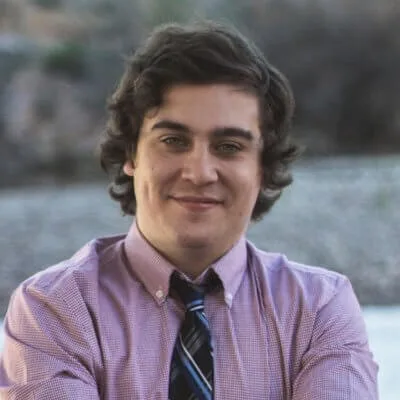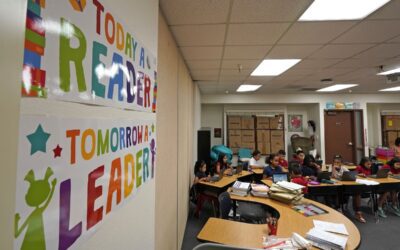
The Isaac Unified School District Governing Board at a meeting on March 6, 2025.
Want news like this in your inbox? Sign up for The Copper Courier’s free newsletter here.
Over a dozen schools in Arizona have closed or will close at the end of the 2024-25 school year. Here’s what you need to know.
How does it happen? Schools in Arizona can be closed by a vote from the district’s governing board.
What happens to the students? When a school is closed the students have to transfer to another school in the district, which increases class sizes and gives instructors less time to work with each student.
Which schools are closing? The Cave Creek, Paradise Valley, Roosevelt, and Isaac school districts have all closed or plan to close schools:
- The Cave Creek Unified School District is closing Lone Mountain Elementary and Desert Sun Academy in July.
- The Paradise Valley Unified School District closed Sunset Canyon Elementary, Desert Springs Prep Elementary, and Vista Verde Middle School in July 2024.
- The Roosevelt School District is closing Maxine O. Bush Elementary, John R. Davis Elementary, C.J. Jorgensen Academy of Service Learning, Martin Luther King Jr. Elementary, and V.H. Lassen Academy of Science and Nutrition in August.
- The Isaac School District is planning on closing Moya Elementary, P.T. Coe Elementary, and Isaac Online Prep Academy after the 2024-2025 school year.
Why does it happen? School boards typically vote to close schools when enrollment declines.
Declining enrollment doesn’t happen overnight. It happens over years, and in this case, it’s a victory lap for people who’ve made a concentrated effort to hamstring public schools in Arizona. Under the guise of so-called “school choice” vouchers, state and local politicians have directed taxpayer funding away from public schools and into supporting private schools.
READ MORE: It’s not just today—Arizona schools have had funding issues for decades
Vouchers allow families to essentially take money out of the public school system and use it to pay for a student’s private school.
In theory, this would allow families who don’t have access to private schools to “choose” the best school, public or private, to suit their child’s needs. In reality, school choice vouchers have proven to simply pick up the tab for students already attending private schools—and not increase access for all students.
That’s because unlike public schools, private schools can choose which students they admit—allowing them to select the number and type of students they feel are ideal to their school community. There’s also evidence that when vouchers pay for private schools, private schools increase their tuition—reducing the impact of the voucher for families that couldn’t otherwise afford the school.
A 2024 report from the Learning Policy Institute showed that 52% of students in Arizona’s voucher program were never enrolled in public education. That same report noted that vouchers led to per-pupil funding in public schools dropping from $15,565 in 2021-22 to $9,782 in 2023-24.
Vouchers were a primary force in creating a $1.4 billion budget shortfall in Arizona in 2024. To fix that deficit, Arizona’s lawmakers made cuts to state programs and projects—like water infrastructure programs, highway expansions and repairs, and even improvements to air conditioning in state prisons.
Support Our Cause
Thank you for taking the time to read our work. Before you go, we hope you'll consider supporting our values-driven journalism, which has always strived to make clear what's really at stake for Arizonans and our future.
Since day one, our goal here at The Copper Courier has always been to empower people across the state with fact-based news and information. We believe that when people are armed with knowledge about what's happening in their local, state, and federal governments—including who is working on their behalf and who is actively trying to block efforts aimed at improving the daily lives of Arizona families—they will be inspired to become civically engaged.


At Arizona civics camp, Hobbs urges young students to take initiative, seek mentors
PHOENIX – Gov. Katie Hobbs advised students visiting Arizona from around the country to seek out mentors and grasp opportunities as they come along....

Arizona Gov. Katie Hobbs vetoes bill banning teaching antisemitism, calls it an attack on educators
Arizona Gov. Katie Hobbs has vetoed a proposal that would have banned teaching antisemitism at the state’s public K-12 schools, universities and...

Unleash your creativity at NAU’s Young Authors Camp
Students can get creative with NAU’s Young Authors Camp, July 7-11. Plus, scholarships are available via Northern Arizona Book Festival. Aspiring...

Bill that would allow parents to sue teachers over ‘antisemitic conduct’ moves to governor’s desk
PHOENIX — The Arizona House of Representatives passed a final version of HB 2867, the Antisemitism in Education Act, on Wednesday, the last hurdle...





